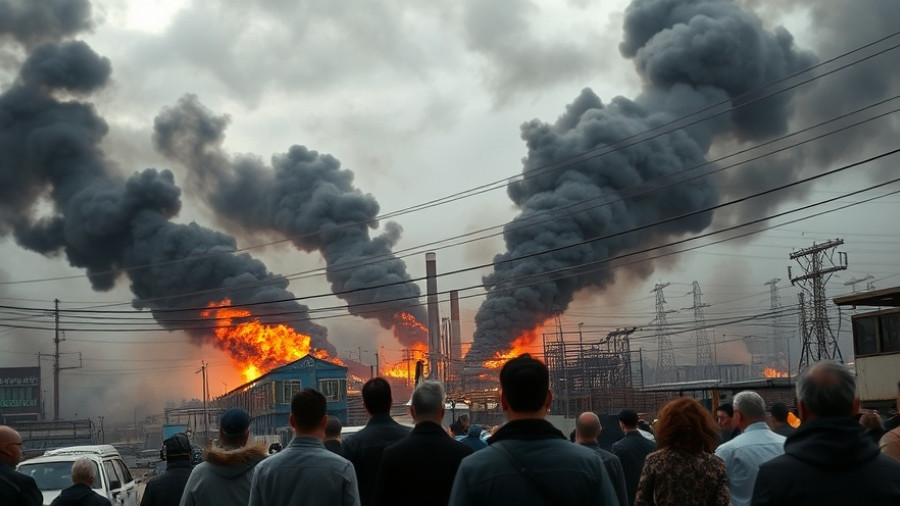
Calls for Action as Weapons Fuel Conflict in Sudan
As Prime Minister Mark Carney prepares for a crucial trip to the United Arab Emirates (UAE) ahead of the upcoming G20 summit, human rights advocates are escalating their calls for Canada to halt the flow of weapons to Sudan. Specifically, these advocates are urging the Canadian government to take a stand against the alleged arms shipments from the UAE to the Rapid Support Forces (RSF), a militia implicated in horrific ethnic violence. This concern has intensified following reports that planes, initially meant for humanitarian aid, may be transporting arms instead.
The Humanitarian Crisis in Sudan
Since the outbreak of civil war in April 2023, the situation for ordinary Sudanese citizens has become dire. Over 30 million people now require urgent humanitarian assistance, with 16 million of them being children. This staggering statistic translates to more than a quarter of Canada's population in need of help. The crisis has not only led to massive casualties—more than 16,650 killed—but also created the largest displacement predicament in the world, according to Amnesty International. With humanitarian aid obstructed, survival for many is becoming increasingly tenuous.
Canada's Role in Arms Exports
Human rights organizations, including World Vision Canada, emphasize the paradox of Canada’s arms export policy, which they claim is world-class while Canadian-made weapons are reportedly contributing to Sudan's violence. The debate is not merely academic; real human lives are affected. As Martin Fischer, World Vision Canada’s policy director, stated, the Canadian government must align its actions with its stated values, particularly when faced with reports of complicity in humanitarian violations.
Growing International Scrutiny
The international community is closely monitoring the flow of arms into Sudan. Reports suggest a constant influx of military resources—from countries such as China, Russia, and the UAE—fueling the conflict and perpetuating civilian suffering. Despite denials from the UAE government regarding their support for the RSF, myriad human rights groups maintain that the evidence is compelling and credible.
Upcoming G20 Discussions and accountability
As Canada joins other global leaders at the G20, pressing humanitarian issues will undoubtedly be on the agenda. Many advocates urge Ottawa to leverage its global standing to push for critical changes, including expanding the existing arms embargo—now limited to Darfur—to cover all of Sudan. They argue that without stringent oversight and accountability, arms transfers will continue to enable the cycle of violence, directly contravening international laws regarding humanitarian conduct.
What's Next for the Canadian Government?
As discussions amplify around Canada's role, there are calls for the government to reevaluate its current arms export permits to ensure compliance with international human rights standards. Recent testimonies before parliamentary committees have underscored this urgency, calling for immediate action to prevent complicity in war crimes. The situation calls not just for words but for tangible actions that reflect the gravity of the humanitarian crisis.
Conclusion: The Urgent Need for Change
The plight of the civilians in Sudan serves as a stark reminder of the effects of global arms trading, particularly when human rights standards are compromised. With increasing visibility on international platforms, there is a pressing need for Canada to assert its commitment to human rights by reevaluating its arms export policies. As we approach significant discussions at the G20 summit, it is crucial for Canada to demonstrate leadership by prioritizing humanitarian values over economic interests.
 Add Row
Add Row  Add
Add 




Write A Comment